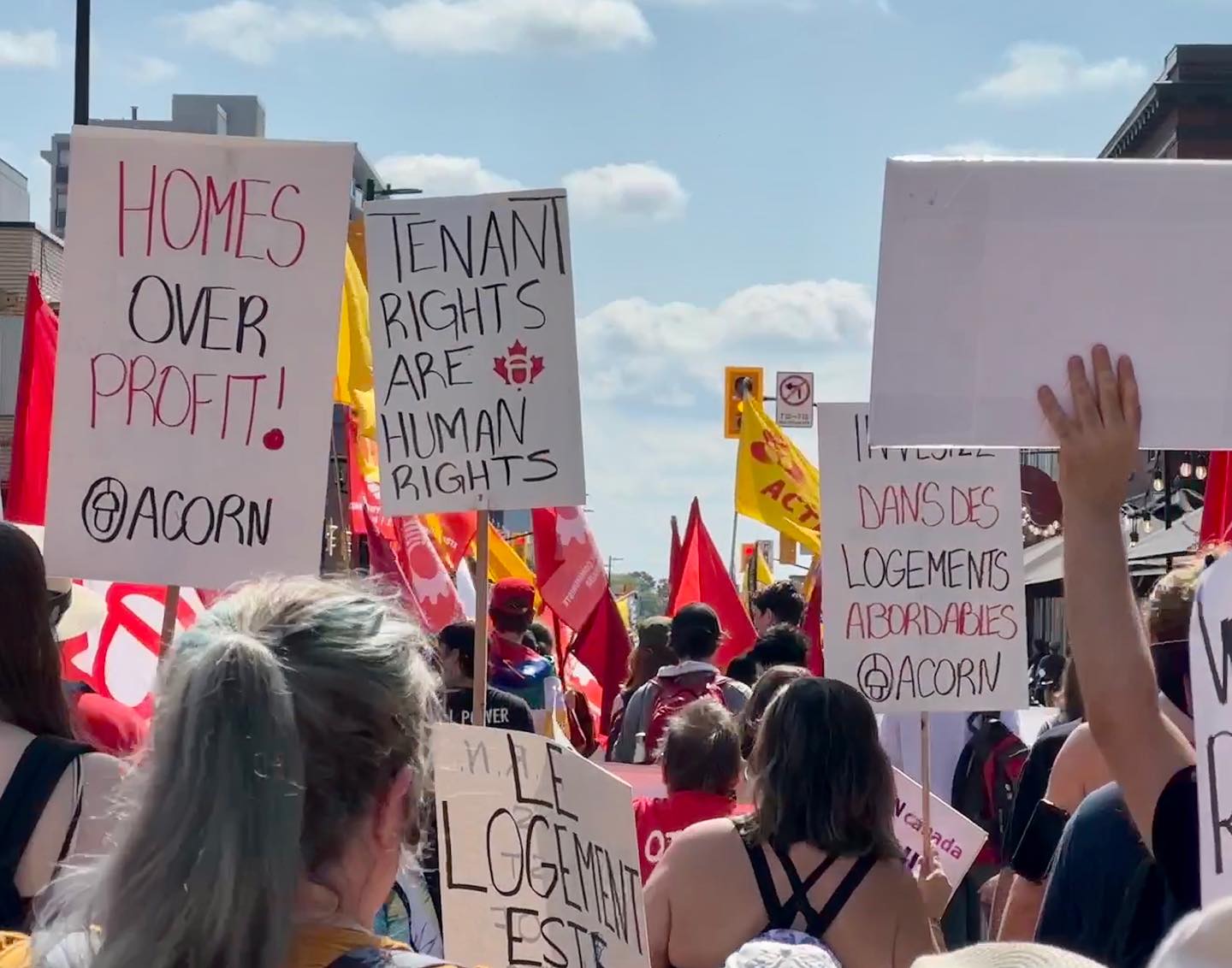Ottawa Citizen: Housing advocates ‘discouraged’ by loss of affordable units for Lansdowne 2.0
Posted October 11, 2023
Housing advocates says they’re deeply disappointed by the revised plan for Lansdowne Park, which eliminates an affordable housing component in favour of a one-time, $3.9-million payment to the City of Ottawa.
Kaite Burkholder Harris, executive director of the Alliance to End Homelessness, said the Lansdowne 2.0 proposal highlighted the challenge of building affordable housing, even on city-owned property.
“It’s really discouraging because it is a such short-sighted move,” Harris said in an interview Friday. “We could have had affordable housing on that site in perpetuity if they had designed it differently.”
Edward Roué, chair of the Central Ottawa ACORN community organization, said the deal as proposed should be rejected by city council.
“The original deal was not great to start with and this is much worse,” Roué argued. “To me, if the city accepts this, it shows they’re not taking the housing crisis seriously. The place to start solving that crisis is on land that the city owns.”
Whenever residential units are built on city-owned property, 30 per cent should be set aside as rent-geared-to-income, Roué said.
Under the revised Lansdowne 2.0 plan released Friday, the number of residential units to be built on the site will be reduced to 770 from 1,200, with one of three towers from the initial proposal eliminated.
The city’s private partner in the development, Ottawa Sports and Entertainment Group, originally said 10 per cent of the units would be affordable, but that idea has been shelved in favour of an upfront payment of $3.9 million. That money represents 10 per cent of the $39 million the city estimates it will receive for selling air and subterranean rights for the Lansdowne towers and their underground garages.
The money can be used immediately to finance other affordable housing projects, city officials say, eliminating the decade-long wait for the Lansdowne towers to be constructed.
The city’s largest social housing provider, Ottawa Community Housing, was involved in negotiations that led to the agreement.
In an analysis of the revised Lansdowne 2.0, Capital Ward Coun. Shawn Menard classified the abandonment of affordable housing as an “ugly” element of the proposal.
Even worse, he said, the staff report asks council to waive requirements of the Affordable Housing Land and Funding Policy, which says 25 per cent of proceeds should go into the city’s affordable housing coffers whenever it sells public land for private residential development.
Using that formula, Menard said, the city should receive $9.75 million for the Lansdowne development, not $3.9 million.
“This means both property tax dollars and revenues earmarked for affordable housing will be redirected to pay for Lansdowne 2.0,” he said.
According to the staff report, affordable housing at Lansdowne is 20 per cent more expensive to build than elsewhere in the city. Using the $3.9 million to develop affordable housing in other neighbourhoods, staff said, will offer more affordable units for less money.
Menard said that staff argument doesn’t hold water.
“I know the city is using that argument — ‘Now we can get housing built right away’ — but we could have housing build right away,” he said in an interview. “We could have done that with $9 million. It’s the fact that they’re reducing the total (amount) that’s the concern.”
Joseph Ostrovsky, a board member of the advocacy group Make Housing Affordable, said he was disappointed the new Lansdowne proposal cut the overall number of units. “The city, and all levels of government, need to take a bigger role in the construction of affordable housing,” Ostrovsky said.
Burkholder Harris pointed to the Dream LeBreton project, approved last year, as an example of what could be done when governments worked creatively with non-profit housing providers.
The two towers being built by the group Dream LeBreton will have a total of 601 rental units, of which 247, or 41 per cent, will be designated as affordable. The non-profit charity Multifaith Housing Initiative will own and operate 132 of those units.
“We should incentivize those kind of partnerships,” Burkholder Harris argued. “There should be an express lane for any planning application that has a non-profit component, and we should ensure they get density bonuses for things like that.”
With files from Blair Crawford
****
Article by Andrew Duffy for Ottawa Citizen

